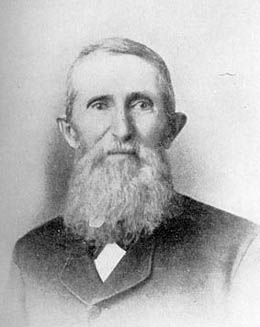
A Founding Father’s Journey: Job Carr’s Role in Shaping Tacoma
Job Carr played a significant role in the founding and early development of Tacoma, Washington, leaving a lasting legacy as one of the city’s pioneering settlers. Here’s an in-depth look at his life and contributions:
Early Life: Job Carr was born on July 18, 1813, in Columbiana County, Ohio. Little is known about his early years, but he likely grew up in a rural farming community in the American Midwest. Carr’s upbringing instilled in him a strong work ethic and a sense of adventure that would shape his future endeavors.
Westward Migration: In the mid-19th century, Carr joined the westward migration that swept across the United States, drawn by the promise of new opportunities and adventure on the frontier. He eventually settled in the Oregon Territory, where he worked as a farmer and laborer, seeking his fortune in the rapidly expanding American West.
Settlement in Puget Sound: In 1864, Carr arrived in the Puget Sound region, where he settled near the mouth of the Puyallup River, a natural harbor on the shores of Commencement Bay. Recognizing the potential of the area as a strategic transportation hub, Carr established a homestead and trading post, laying the foundation for what would later become the city of Tacoma.
Founding of Tacoma: Carr’s settlement, known as “Carr’s Inlet,” quickly attracted other pioneers and settlers seeking land and opportunity in the burgeoning Puget Sound region. Carr’s trading post served as a focal point for trade and commerce, facilitating the exchange of goods between settlers, Indigenous tribes, and passing traders.
In 1868, Carr donated land for the construction of Tacoma’s first schoolhouse, laying the cornerstone for the city’s educational system. The following year, he platted the town site of Tacoma City, envisioning a thriving urban center that would rival neighboring communities like Seattle and Olympia.
Role in City Building: Carr played a pivotal role in the early development of Tacoma, serving as a community leader, landowner, and advocate for progress. He promoted the city’s growth by selling land to settlers, establishing businesses, and participating in civic affairs.
In 1873, Carr was elected as the first justice of the peace for Tacoma City, overseeing legal proceedings and maintaining order in the growing community. He also served as a trustee for the Tacoma Land Company, which played a key role in promoting land sales and development in the city.
Legacy: Job Carr’s contributions to the founding and early growth of Tacoma are commemorated in the city’s history and heritage. Carr’s Inlet, the site of his original settlement, is now known as Old Town Tacoma and serves as a historic district that celebrates the city’s pioneer past.
In 2000, the Job Carr Cabin Museum was established in Old Town Tacoma to preserve and interpret Carr’s legacy and the history of Tacoma’s early settlers. The museum showcases Carr’s original log cabin, artifacts from the pioneer era, and exhibits that explore the city’s founding and development.
Conclusion: Job Carr’s pioneering spirit, vision, and determination were instrumental in the founding and early development of Tacoma, Washington. His legacy lives on in the city’s streets, landmarks, and institutions, reminding residents and visitors alike of the enduring legacy of Tacoma’s founding father.
